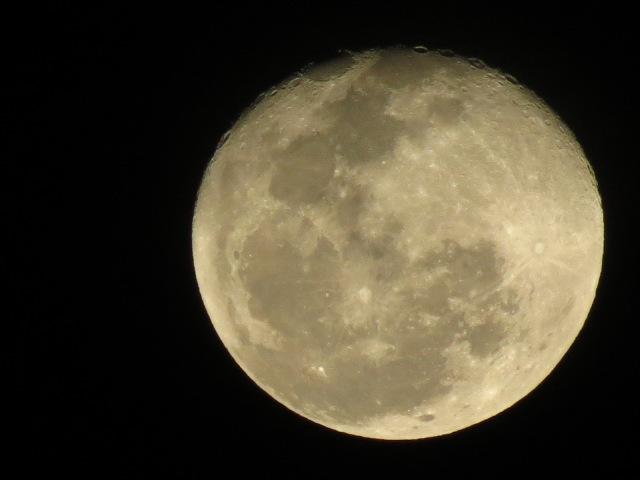
Caption
Temperatures aren't dropping as low overnight as they used to.
Credit: Photo courtesy of Carlos Rosemberg via stock.xchng
GPB's Peter Biello speaks with Dr. Marshall Shepherd of the University of Georgia about rising temperatures at night across Georgia.

Temperatures aren't dropping as low overnight as they used to.
Unusually hot summer days have become more common across the U.S. and overnight lows aren't as low as they used to be.
In fact, all of Georgia's cities saw higher minimum temperatures this past July when compared to the 20th century average. And that's alarming because these rising temperatures caused not only discomfort, but also health problems.
For a closer look at what these rising temps mean for Georgia, GPB's Peter Biello spoke with Dr. Marshall Shepherd, director of the Atmospheric Sciences Program at the University of Georgia.
Peter Biello: Records kept by the National Oceanic and Atmospheric Administration show average minimum temperatures are rising by a few degrees when compared to the average over the last century. How worrisome is a boost in the nighttime temperatures, even when it's by just a few degrees?
Marshall Shepherd: A few degrees is quite deceiving. It is the nighttime temperatures that create problems because when our bodies can't cool down, that's when we start to see the health disparities. And I know people say, well, it's only a few degrees warming here or there, but the way I usually frame that is: imagine if our body temperatures ran a fever of a few degrees here and there. Maybe one or two degrees doesn't sound like much, but when we think about whether our bodies could sustain 100 degrees or 101 degrees, then the body starts to have reactions and shut down. And so it's important to understand that one or two degrees actually doesn't seem like a lot to us, but to the climate system is quite a bit.
Peter Biello: You've done research on how rising temperatures impact cities and how they impact rural areas and the differences between the two. What did you find about the way heat impacts cities in particular?
Marshall Shepherd: We've long known that cities are warmer than rural areas because of the urban heat island (asphalt, waste heat from buses and HVAC systems, less tree cover for evapotranspirational cooling). And so this urban heat island has long been understood. But what we are most concerned about now is with the amplification of warming due to climate change and a generation of more intense and frequent heat waves, people in cities are going to deal with a triple whammy effect of heating. And as noted in some of our studies, some of the most vulnerable people within our community are disproportionately exposed to this urban heat. So that's of concern.
Not to let the heating off the hook in the rural areas — even though you may not have the heat island, the background temperatures are warming so significantly, particularly at night — even communities of color, the elderly population, kids, [and] poor communities are still vulnerable to that even — even if they aren't within an urban heat island.
Peter Biello: What policies could state or city leaders pursue to mitigate the impacts of these rising temperatures, in particular on Georgia's most vulnerable people?
Marshall Shepherd: In cities, we know there are some low-hanging fruit solutions in terms of increased vegetation, perhaps even some changes in the color of surfaces, parking lots and so forth: what we call Albedo modification. But those are low-hanging fruit on the local scale. Certainly thinking about how we vegetate cities, how we plan parking lots in terms of surfaces and color, even planning to orient streets in such a way that they can take advantage of the natural wind.
Now, on the big scale, climate warming scale, we've got to reduce carbon emissions. There's no sort of other answer. We've got to reduce carbon emissions to start to tamp back global heating. But in some cases we're too late. So we're going to have to implement policies of adaptation.
Peter Biello: Is this trend of rising temperatures expected to continue? And if so, what about the pace? Is the pace expected to remain about the same or will it pick up? What do you see happening?
Marshall Shepherd: Heat is here. We are in an era of a different heat than we've grown up in. People often say, "This can't be the heat that I grew up in as a kid here in Georgia." It's not. It is warmer and we are going to see an acceleration of that warming. In fact, we may have lived through some of the, quote unquote, "coolest" summers that we'll see going forward because they're on average likely to be warmer. Now, look, you might have a summer that's cooler than 2022 or 2021. Don't cherry pick one or a couple of summers. You have to look at the overall trend. And that overall trend is disturbing because we see an increase. So for me, it is not breaking news anymore when I hear it was the warmest June on record and the second warmest July or the warmest summer. That headline is really played out. I mean, that's just our reality going forward.